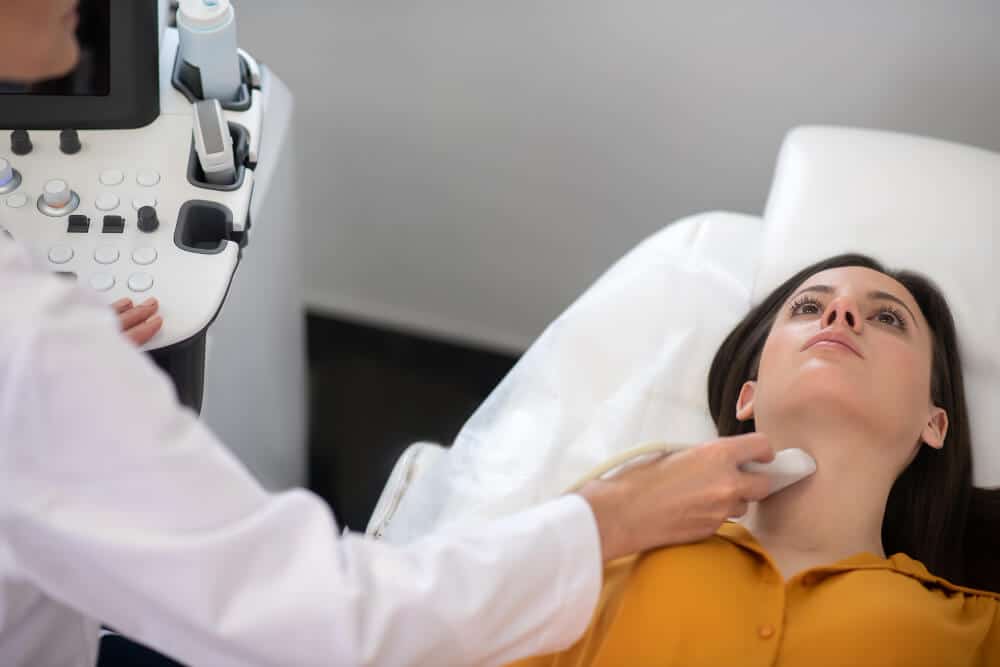When you get your thyroid test results back—especially that TSH thyroid level—it’s easy to feel overwhelmed. Numbers and medical jargon can cloud the real message. However, understanding what your thyroid-stimulating hormone (TSH) result means is often the first step toward better health and clarity.
What Is TSH?
TSH thyroid is a hormone produced by the pituitary gland that regulates how much thyroid hormone your thyroid gland produces—namely, T3 and T4. Think of TSH as the thermostat: if your thyroid is underperforming, TSH goes up to push it; if your thyroid hormone levels are high, TSH drops accordingly.
If you’ve ever wondered, What is thyroid disease, it includes conditions where the thyroid doesn’t make the right amount of hormones. TSH plays a key role in identifying these imbalances.

What’s a “Normal” TSH Range?
“Normal” can vary by lab and person—but generally, for most adults, TSH falls between 0.4 and 4.0 mIU/L. Some labs may say 0.5–5.0, but the 0.4–4.0 range is more typical.
Keep in mind, there’s also talk of an “optimal” range—some experts argue that TSH levels between 0.3 and 2.0 mIU/L might better predict long-term thyroid health and catch early signs of thyroid disease.
Interpreting Low TSH Results
A low TSH result usually means your thyroid is overactive—hyperthyroidism. Your body might be producing too much thyroid hormone. This can speed up your metabolism, leading to symptoms like:
- Weight loss
- Elevated heart rate or palpitations
- Anxiety
- Heat sensitivity and sweating
- Tremors or jitteriness
Further testing with Free T4 and sometimes T3 is often ordered to get a full picture. This is something that thyroid doctors in NYC commonly recommend for patients showing early signs of imbalance.
Interpreting High TSH Results
Conversely, a high TSH suggests hypothyroidism, meaning your thyroid isn’t producing enough hormones. You’ll often see symptoms such as:
- Fatigue or sluggish feeling
- Weight gain
- Cold intolerance
- Dry skin or hair thinning
- Brain fog or slowed thinking
Doctors might check Free T4, sometimes T3, and even thyroid antibodies to rule out causes like Hashimoto’s disease. A comprehensive evaluation is key to effective Hashimoto’s thyroiditis treatment and other long-term solutions.
If you’re asking, What is thyroid disease, it’s important to understand that both overactive and underactive thyroid function fall under that umbrella, and they often require different testing and treatment paths.
What about Subclinical Hypothyroidism?
This happens when TSH is high but Free T4 is normal, and symptoms may be subtle or absent. Treatment decisions vary, but levothyroxine is commonly prescribed when TSH is consistently high—especially over 10 mIU/L—or if there are heart-disease risks.
In such cases, it helps to work with a specialized thyroid treatment center NYC residents trust, where thorough diagnostics and long-term support are part of the process.
The Bigger Picture: Additional Tests
TSH is a great starting point—but not the whole story. For a fuller understanding, thyroid doctors in NYC may include:
- Free T4: Often drops in hypothyroidism and rises in hyperthyroidism
- Free T3 or total T3: Useful in diagnosing hyperthyroidism
- Thyroid antibodies: Help diagnose autoimmune conditions like Hashimoto’s or Graves’
A targeted testing approach is often recommended when planning Hashimoto’s thyroiditis treatment, as it requires long-term management.
Lab Variations & Timing Matter
TSH reference ranges can shift slightly depending on the lab method and the population for which it is calibrated. Always check the reference range printed on your lab report—that’s your best guide.
Factors like age, medication, supplements (especially biotin), pregnancy, and even the time of day may influence TSH levels. If you’re being evaluated at a thyroid treatment center NYC, these variables will typically be factored in.
What to Do If Your TSH Isn’t Normal?
- Review the symptom checklist for fatigue, mood swings, and weight changes.
- Request a full thyroid panel – TSH + Free T4 + possibly T3 and antibodies
- Discuss the next steps – medication, lifestyle adjustments, and monitoring.
- Track TSH every few months when starting or adjusting treatment.
These steps help detect or manage thyroid disease more effectively.
Why Partnering with the Right Clinic Matters
If you’re unsure about your lab results or just not feeling your best, a clinic like Patients Medical can help guide you. Their integrative approach blends advanced testing with holistic care, offering personalized solutions for patients across all thyroid conditions.
At Patients Medical, the focus isn’t just on lab numbers—it’s on you. Their experts take the time to understand your full health history, symptoms, and lifestyle.

Frequently Asked Questions
Q. What does a TSH test measure?
Ans. A TSH thyroid test measures thyroid-stimulating hormone to check how well your thyroid is working and detect early signs of thyroid disease.
Q. What is a normal TSH level?
Ans. Most labs consider a TSH level between 0.4 and 4.0 mIU/L to be normal, though some experts prefer 0.3–2.0 mIU/L. Knowing this helps answer what is thyroid disease and how it’s diagnosed.
Q. What does a low TSH level mean?
Ans. Low TSH usually suggests hyperthyroidism, where your thyroid is overactive and producing too much hormone. It’s best to consult experienced thyroid doctors in NYC for an accurate diagnosis and treatment.
Q. What does a high TSH level mean?
Ans. High TSH often indicates hypothyroidism, where your thyroid isn’t making enough hormones. This may also signal the need for Hashimoto’s thyroiditis treatment in certain cases.
Q. Can I get help understanding my thyroid tests?
Ans. Yes, clinics like Patients Medical and any reputable thyroid treatment center NYC offer personalized evaluations to help you make sense of your thyroid test results.
Conclusion
By understanding what your results mean and working with a dedicated care team, you can take real steps toward restoring balance. If you’re looking for experienced care, clinics like Patients Medical are here to support you through every stage of your thyroid journey.

John Pillepich
John Pillepich, PhD, CPhT, is a nutritionist and certified pharmacy technician. He has more than 30 years of experience in the health field, from working in medical practices to doing clinical chemistry in hospitals, to owning a health food store. Read more about the author →





